Living on board a boat is very much what you make it. As a general rule there are few restrictions--depending, of course, on the type of boat you want to live in. Even if living permanently afloat seems too restrictive, weekend boating is becoming increasingly popular.
The first governing factor is whether the boat you have chosen is connected to main services-if so, many of your problems end there. If not, your first job will be to fit your boat up with the equipment essential to everyday life.
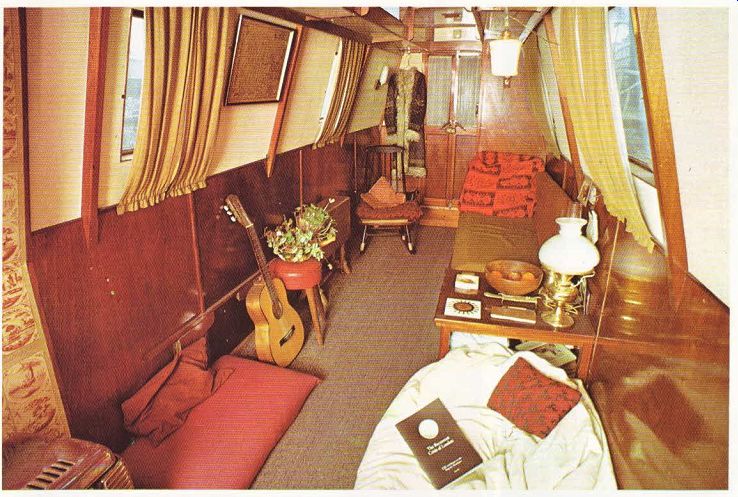
------ Above. The main living area of the boat shows how
such a narrow interior can be organized to appear welcoming and smart The sag-bag
and large floor cushions add to the sense of informal comfort.
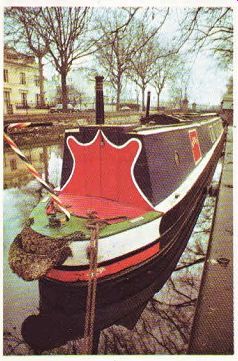
---- Above. The narrow boat ' Kent, has been re-painted in the traditional
style to make an eyecatching home on the canal.
You will need water-both for drinking and for washing with. Your main problem here will be where to site the tank, remembering that weight is always a problem afloat-particularly if the boat is still occasionally mobile. Tanks should be kept to a reasonable size, perhaps around 200 gallons, depending on the size of your boat.
Even for very brief stays you will need lighting and the use of other electrical appliances. Here again the size of the battery will be regulated by the amount of space available. Batteries are usually placed underneath the deck somewhere that is easily accessible for topping up and especially somewhere--dry. Recharging is a simple matter--there are many compact gener ators on the market which are perfectly adequate for domestic use. Be sure to check the voltage of the appliances you will be using on board, though it is possible to buy vacuum cleaners and television sets which have specially adapted voltage.
Calor gas is probably one of the most practical methods of cooking and heating and can even be used for lighting. Remember though that gas is heavier than air, so it tends to sink down into the boat ‘s bilges, where, despite its slightly un pleasant smell it can accumulate unnoticed and in extreme cases cause an explosion. Gas cylinders should always be kept in a well ventilated place, preferably in a locker in the cockpit, or on deck where the fumes will disperse naturally. Make use of the many different models of gas and fire detectors which you should buy at the same time as your fire extinguishers.
Heating an enclosed area like a boat presents its own problems. Condensation is particularly bothersome in glass fiber or unlined metal hulls, but good ventilation should put that right.
Ventilation is even more important if you use paraffin heaters because they give off small quantities of dangerous carbon monoxide.
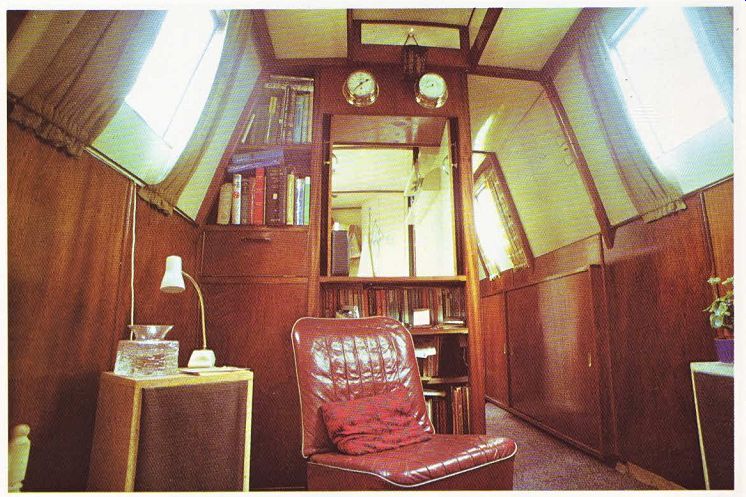
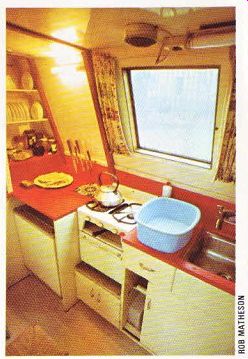
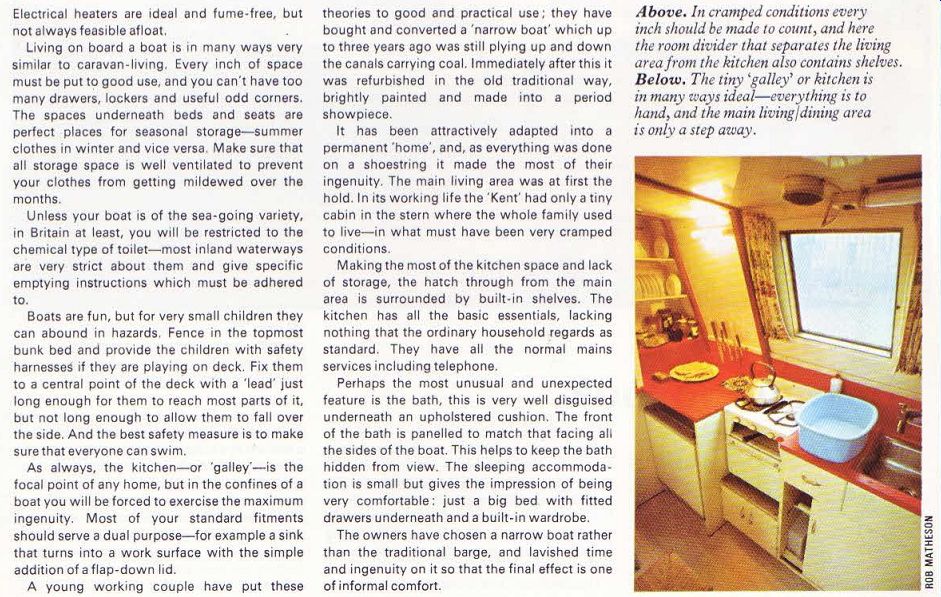
----------------
----------------